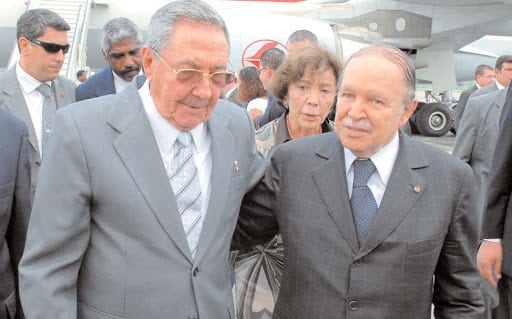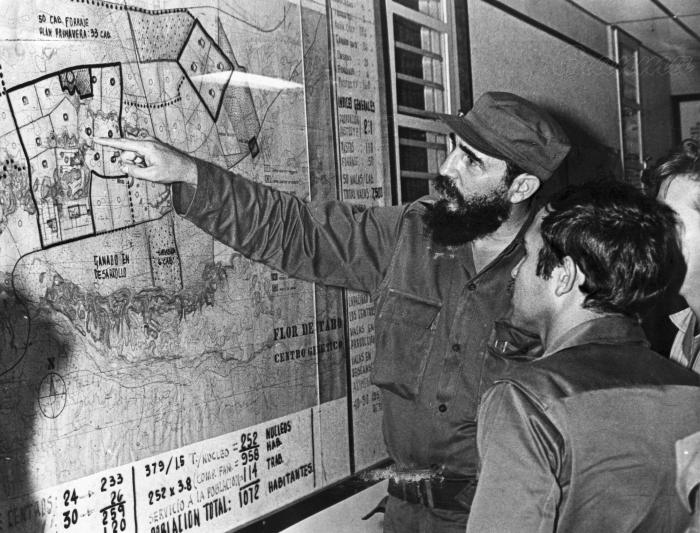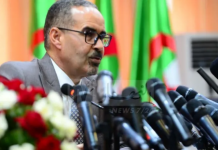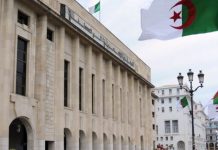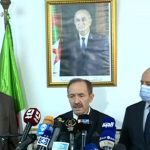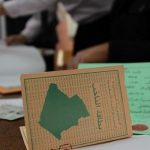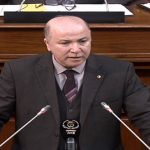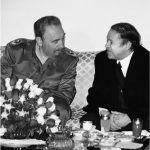ALGIERS- The Cuban President Miguel Díaz-Canel Bermúdez decreed national mourning from 06:00 am until 12:00 on the evening of September 21, 2021, following the death of former President Abdelaziz Bouteflika.
“President Miguel Díaz-Canel Bermúdez decreed national mourning from 06:00 am until 12:00 on the evening of September 21, 2021, following the death of Abdelaziz Bouteflika, former Algerian president and dear friend of Cuba, Fidel and our Revolution,” read a tweet from the Cuban Embassy in Algeria.
Army General Raúl Castro, former President of Cuba and brother of Fidel Castro, and President-in-Office Miguel Díaz-Canel Bermúdez sent messages to President Abdelmadjid Tebboune following the sad death of the former President, Abdelaziz Bouteflika.
According to a statement from the Cuba’s Foreign Ministry published on Monday and quoted by local media, Raúl Castro recalled, in his message, the pleasant moments shared with Bouteflika and the affection he showed towards the historic leader of the Cuban Revolution, Fidel Castro.
Mr. Díaz-Canel Bermúdez, meanwhile, underscored the friendship between the two leaders, expressing “his deepest condolences on behalf of the people and government of the Caribbean nation.”
Cuban Foreign Minister Bruno Rodríguez Parrilla paid, on Saturday, tribute following the death of former President of the Republic late Friday. “Our condolences to the Algerian people and government on the death of former President Abdelaziz Bouteflika, who was a close friend of Cuba and its Revolution,” he wrote on Twitter.
The body of the former President of the Republic, Abdelaziz Bouteflika, who passed away last Friday, at the age of 84, was laid to rest, Sunday, at the Martyrs’ Square in Al-Alia cemetery (Algiers).
The funeral was attended by the President of the Republic, Abdelmadjid Tebboune, the Speaker of the Council of the Nation, Saleh Goudjil, the Speaker of People’s National Assembly, Ibrahim Boughali, the President of the Constitutional Council, Kamel Fennich, Prime Minister, Minister of Finance, Aïmene Benabderrahmane and Chief of Staff of the People’s National Army, Lieutenant-General Said Chengriha as well as members of the government.
Senior state officials, national figures and mujahidin, and representatives of the diplomatic corps accredited in Algeria, as well as members of the family of the deceased were, also, in attendance.
In a eulogy, the Minister of Mujahidin and Rights Holders, Mr. Eid Rebika, highlighted the deceased’s struggle path and the most prominent milestones of his political life.
The late Bouteflika, a veteran of Algeria’s war for independence, had ruled Algeria for two decades before his resignation in April 2019.
He joined the independence war against France at the age of 19 as a protege of commander Boumediene, who became president in 1965.
After Algeria’s independence from France in 1962, Bouteflika became minister of youth and tourism at the age of 25. The following year, he became Algeria’s second foreign minister and the youngest person in the world to hold such a position.
The deceased was an influential figure in the Non-Aligned Movement that gave a global voice to Africa, Asia and Latin America.
As a president of the U.N. General Assembly, Bouteflika invited former Palestinian leader Yasser Arafat to address the body in 1974, a historic step toward international recognition of the Palestinian cause.
He, also, demanded that China be given a seat in the United Nations, and railed against apartheid rule in South Africa.
He championed post-colonial states, challenging the hegemony of the United States.
He also welcomed Che Guevara, and a young Nelson Mandela got his first training in Algeria. Black Panther Eldridge Cleaver, on the run from U.S. police, was given refuge.
Elected president in 1999, he launched a national reconciliation process allowing the country to restore peace.
President Abdelaziz Bouteflika resigned on Tuesday, April 2, 2019, a few weeks before the end of his term of office on April 28.
